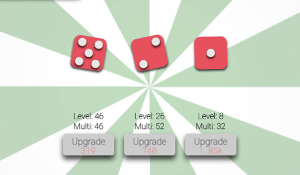In today’s digital age, where gaming and education often intersect, few puzzles capture the imagination quite like Sudoku. This classic number puzzle is more than just a brain-teaser; it’s a global phenomenon that bridges the gap between entertainment and cognitive development. For online gamers and school students alike, Sudoku offers a unique blend of fun and learning that can enhance problem-solving skills and mental agility. In this comprehensive guide, we’ll explore the fascinating world of Sudoku, from its origins and benefits to practical tips for mastering the game. Whether you’re a seasoned gamer or a curious student, there’s something here for everyone.
Sudoku Online
Sudoku may seem like a modern invention, but its roots stretch back centuries. The game traces its origins to an 18th-century Swiss mathematician named Leonhard Euler, who created a puzzle called the “Latin Square.” However, it wasn’t until the late 20th century that Sudoku, as we know it today, gained widespread popularity. It was a Japanese puzzle company that introduced the game to a global audience, giving it the name Sudoku, which means “single number.”
The game’s rise to fame was swift, with newspapers worldwide publishing daily Sudoku puzzles. Its simple yet challenging nature captured the hearts of many, making it a staple in both print and digital media. Understanding the history of Sudoku adds depth to the experience, connecting players to a legacy of logical thinking and number placement that transcends time and borders.
Why Sudoku is Popular Games?
For online gamers, Sudoku is more than just a casual pastime. Its allure lies in its ability to stimulate the mind and provide a satisfying challenge. Unlike many video games that rely on graphics and action, Sudoku focuses on logic and strategy. This makes it a perfect complement to the fast-paced, visually driven world of online gaming.
Sudoku appeals to gamers who enjoy problem-solving, pattern recognition, and strategic planning. The game’s varying difficulty levels ensure that there is always room for improvement, making it an excellent choice for those who thrive on competition and personal growth. Additionally, Sudoku’s accessibility across platforms allows gamers to enjoy it on their preferred devices, whether they’re at home or on the go.
Educational Benefits of Sudoku
For school students, Sudoku offers a wealth of educational benefits. At its core, Sudoku is a puzzle that requires careful thought and strategic decision-making. These skills are invaluable in the classroom, where problem-solving and critical thinking are key components of academic success.
Sudoku encourages students to engage in logical reasoning, helping them develop a methodical approach to challenges. The repetitive nature of the puzzle also aids in improving concentration and attention to detail. By incorporating Sudoku into their daily routine, students can enhance their cognitive abilities in a fun and engaging way.
The Basics of Sudoku
Before you can master Sudoku, it’s essential to understand the basic rules. The puzzle is typically played on a 9×9 grid, divided into nine smaller 3×3 squares. The objective is to fill each row, column, and 3×3 square with numbers from 1 to 9, without repeating any numbers within the same row, column, or square.
Though the rules are simple, the challenge lies in the complexity of the puzzles. Sudoku puzzles can range from easy to extremely difficult, with varying levels of pre-filled numbers to guide you. This diversity of difficulty levels ensures that players of all ages and skill levels can find a puzzle that suits their abilities.
Strategies of Sudoku Puzzles
Solving Sudoku puzzles requires a combination of logic, patience, and practice. One effective strategy is the process of elimination, where players systematically determine which numbers cannot occupy certain positions based on the existing numbers in the grid. This method helps narrow down possibilities and simplifies the decision-making process.
Another helpful approach is looking for hidden pairs, where two cells in a row, column, or square must contain the same two numbers. Identifying these pairs can provide valuable insights into the puzzle’s solution. By employing these and other strategies, players can improve their efficiency and increase their chances of success.
Common Mistakes to Avoid
Like any puzzle, Sudoku has its pitfalls. One common mistake is rushing through the puzzle without thoroughly checking the placement of numbers. This can lead to errors that are difficult to correct later on. It’s crucial to take your time and verify each move before proceeding.
Another frequent error is overlooking the importance of the 3×3 squares. While it’s essential to focus on rows and columns, the smaller squares play a vital role in the puzzle’s solution. Paying close attention to all aspects of the grid will help prevent mistakes and ensure a more enjoyable experience.
In today’s digital world, technology has played a significant role in popularizing Sudoku. Numerous apps and online platforms offer a wide range of Sudoku puzzles, providing players with endless opportunities to hone their skills. These digital versions often come with added features, such as hints, timers, and difficulty levels, enhancing the overall experience.
Technology has also made Sudoku more accessible, allowing players to enjoy the game on their smartphones, tablets, and computers. This convenience means that Sudoku can be played anytime, anywhere, making it an ideal choice for both gamers and students looking for a quick mental workout.
Sudoku Competitions and Events
For those seeking a competitive edge, Sudoku offers a variety of competitions and events. From local contests to international championships, these events provide an opportunity for Sudoku enthusiasts to showcase their skills and connect with like-minded individuals.
Participating in Sudoku competitions can be a rewarding experience, offering the chance to improve your abilities and gain recognition for your talents. Whether you’re a casual player or a seasoned pro, these events celebrate the joy of Sudoku and the community that surrounds it.
Integrating Sudoku into your daily routine is easier than you might think. For students, setting aside a few minutes each day to solve a puzzle can provide a welcome break from academic pressures while enhancing cognitive skills. Online gamers can use Sudoku as a warm-up exercise before engaging in more complex gaming sessions.
To make Sudoku a part of your everyday life, consider keeping a puzzle book handy or downloading a Sudoku app on your device. By making Sudoku a regular habit, you’ll continue to reap the mental benefits and enjoy the satisfaction of solving each puzzle.
Students to Play Sudoku
Educators and parents alike can encourage students to play Sudoku by highlighting its educational benefits and making it a fun activity. Introducing Sudoku in classrooms or as a family game night option can foster a love for puzzles and logical thinking.
By creating a positive environment for Sudoku, students are more likely to engage with the game and develop valuable skills that extend beyond the puzzle itself. Encouraging healthy competition and celebrating successes can further motivate students to pursue their Sudoku interests.
The Future of Sudoku
The future of Sudoku looks promising, with new variations and innovations continually emerging. From themed puzzles to collaborative challenges, Sudoku continues to evolve, offering fresh experiences for both new and seasoned players.
As technology advances, we can expect even more interactive and immersive Sudoku experiences, further solidifying its place as a beloved puzzle worldwide. Whether you’re a gamer, a student, or simply someone looking for a mental challenge, Sudoku remains a timeless and rewarding pursuit.
Conclusion
Sudoku is more than just a number puzzle; it’s a gateway to improved cognitive abilities and a source of endless entertainment. For online gamers and school students, Sudoku offers a unique blend of challenge and fun, fostering skills that are valuable in both academic and gaming environments. By understanding the game’s origins, benefits, and strategies, players of all ages can unlock the full potential of Sudoku and enjoy the satisfaction of solving each puzzle.













